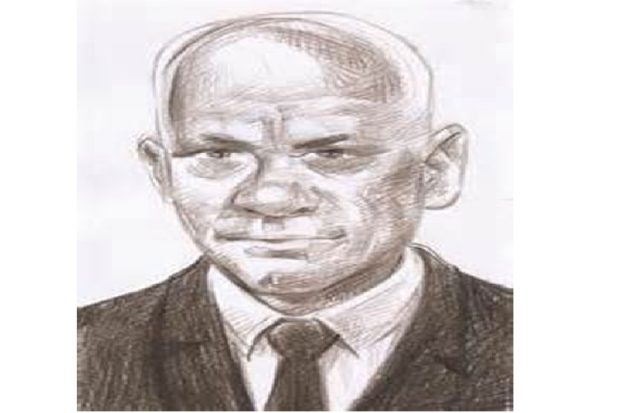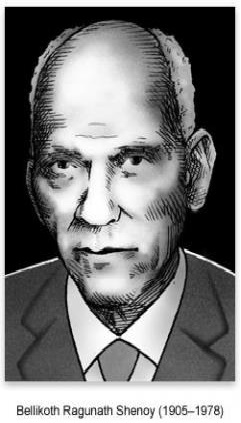

Team Udayavani, Jul 28, 2020, 9:24 PM IST

Post-Independence India’s economic planning mimicked that of the erstwhile Soviet Union – central planning, nationalisation, price controls, subsidies, import substitution etc.
Essentially it meant that everything related to the production of products and rendering of services will be passing through some form of government control or regulation.
This was called as the ‘License-Permit-Quota Raj’ by Chakravarti Rajagopalachari, the last and only Indian Governor-General of India.
Rajaji, as Rajagopalachari was fondly called, favoured freedom in everything whether it be in one’s life or the economy of one’s country. In 1959, in opposition to Nehru and Congress’s economic policies, he founded the Swarajya Party, espousing free markets.
However, it was the peak of the so-called Cold War and socialism and communism were trending across the planet.
Despite the odds, a few scholars in India stood unrelentingly against the very idea of an authority dictating terms to a person. For them, personal liberties were sacrosanct and one of the foremost among those liberties was the liberty of a person to engage in manufacturing, trade and commerce without any artificial, manmade hindrances.
One such stalwart of private economic freedom was Bellikoth Raghunath Shenoy or B R Shenoy.
Shenoy was born near Mangaluru on June 3, 1905. His ancestors were from the village of Bellikoth near present-day Ajanur in Kerala’s Kasargod district.
It is not known where he did his schooling but in 1929 he was first in the MA Economics examination at the Benares Hindu University then he went to the London School of Economics where he studied for an MSc and PhD from 1929-32.
In January 1931 he was very influenced by a lecture titled “Prices and Production” by the famous Austrian-British economist Friedrich Hayek and in the same year, published an essay, “An Equation for the Price Level of New Investment Goods,” in the ‘Quarterly Journal of Economics’ marking him as the first Indian economist to have research published in a reputed scholarly journal.
It is also recorded that during his students years he participated in agitations against the British and was jailed at Nagpur. He was highly influenced by Madan Mohan Malaviya and it was the supposed reason that he came to Benaras to study at the university founded by him.
After returning from London, he became a professor and taught in Pune’s Wadia College, Ahmedabad’s Gujarat University and the University of Ceylon. The last of which brought him further years of association with Government of Ceylon (Sri Lanka) where he worked at the government’s Commission on Currency and at the Department of Commerce.
He returned to India once again and became the principal of L. D. Arts College at Ahmedabad in 1942.
From 1945 to 1954, he worked in various prestigious positions. He joined the Reserve Bank of India in 1945 and while working there he also became the Far Eastern Representative of the International Monetary Fund (1948) and an Alternate Executive Director of International Monetary Fund as well as of the World Bank (1951-53).
In 1954, Gujarat University, where he had previously worked, started the new School of Social Sciences and appointed him its first Director where he remained till 1968. It was during this period an act of his made him known throughout the echelons of the government and bureaucracy as a staunch free-market advocate.
In 1955, Shenoy was appointed to the Panel of Economists – a group of 21 eminent economists selected to appraise the Second Five Year Plan (1956-61). He appended “A Note of Dissent on the Memorandum of the Panel of Economists.”
In the Note, he opposed the Panel’s recommendations and the entire Plan Frame which included heavy industrialisation of the country. He explained in the Note that it will be a disaster as the money required for the Plan does not exist, government spending will create inflation and doubted whether the industrial outputs envisaged in the Plan can be consumed within the country.
He further added that any sort of government intervention in the economy even for a short time will make it repetitive and create artificial distortions in commodity prices.
However, his words were unheeded but were prophetic. India came to the brink of economic collapse in 1991 due to the reasons Shenoy had attributed to the planned economy.
Shenoy resigned from his job as a professor at the Gujarat University in 1968 and founded the Economic Research Centre at Delhi. He wrote volumes upon volumes on the economic situation of the country through his Centre till his death on February 8, 1978.
There is hardly any mark of legacy available of Shenoy in the economics academia of the country even though he was a profound figure in the subject.
In his lifetime, most of his admirers were from Europe and America, including the Nobel laureate and prominent economist Milton Friedman. He was extended the membership of the Mont Pelerin Society founded by his London School of Economics teacher Hayek and also had Friedman as its member.
Shenoy was also the member of the Indian Economic Association in 1957 and was a Visiting Professor at London School of Economics his alma mater.
In 1996 a collection of his writing works were published as “Planned Progress or Planned Chaos.”
Even though it has been 29 years since India’s was liberalised, many of Shenoy’s economic principles and policies still remain unrealised.

Udayavani is now on Telegram. Click here to join our channel and stay updated with the latest news.





“Namma Sante” buzz: From coconut shell art to pure honey delights!


K’taka irrigation issues: CM urges Deve Gowda to come forward to protect state’s interest


Farmer leader Kuruburu Shanthakumar brought to Bengaluru by air ambulance


L.R. Shivarame Gowda and Brijesh Kalappa rejoin Congress


Siddaramaiah is our leader, no need to ‘misuse’ his name: Karnataka Deputy CM Shivakumar


India Nets: Shami works on lengths with Morkel, Pant recovers after freak hit by Hardik shot


To ban or not to ban? Countries debate regulations on smartphone usage in schools


PM didn’t tell his good friend about country’s outrage over handcuffing Indian deportees: Congress


Maha Kumbh: Akhilesh seeks compensation to kin of devotees killed in accidents



“Namma Sante” buzz: From coconut shell art to pure honey delights!
You seem to have an Ad Blocker on.
To continue reading, please turn it off or whitelist Udayavani.